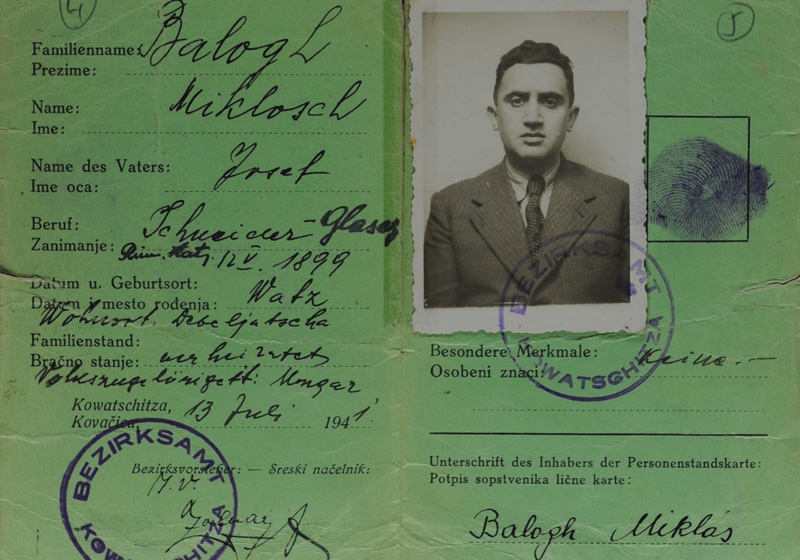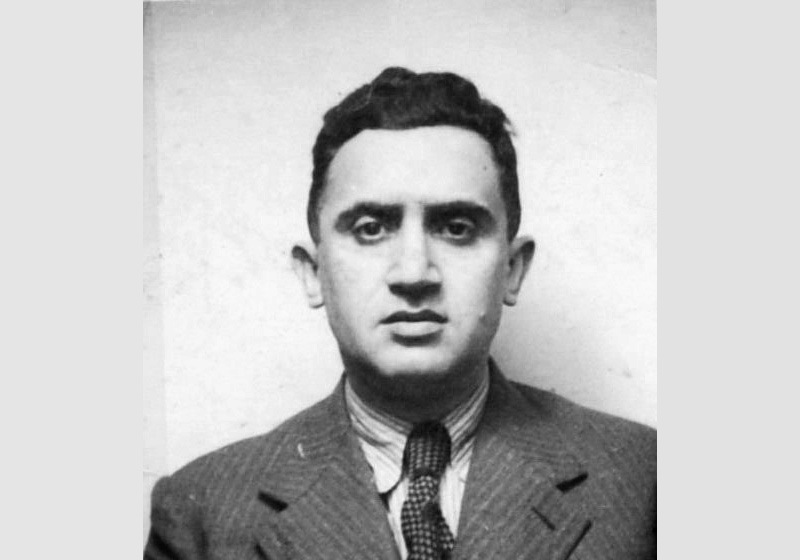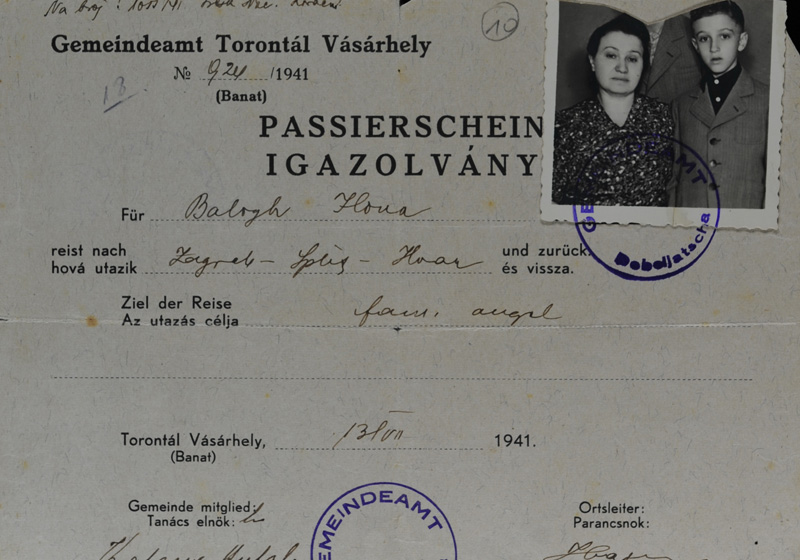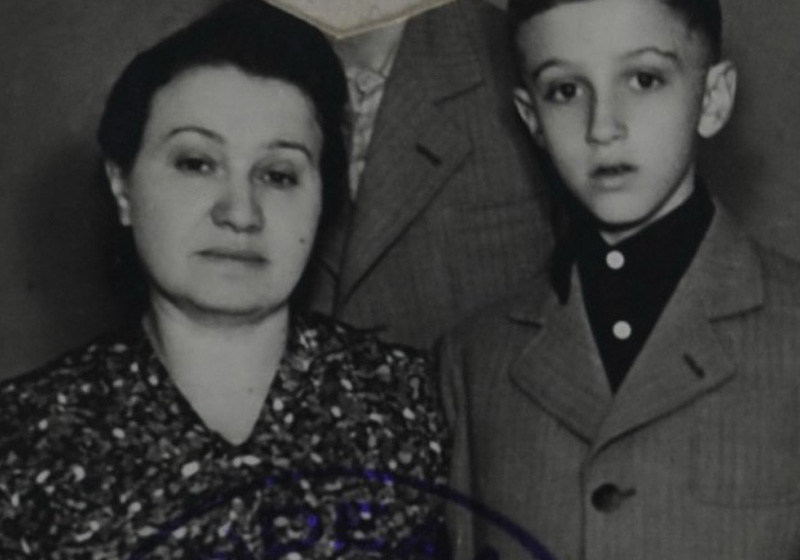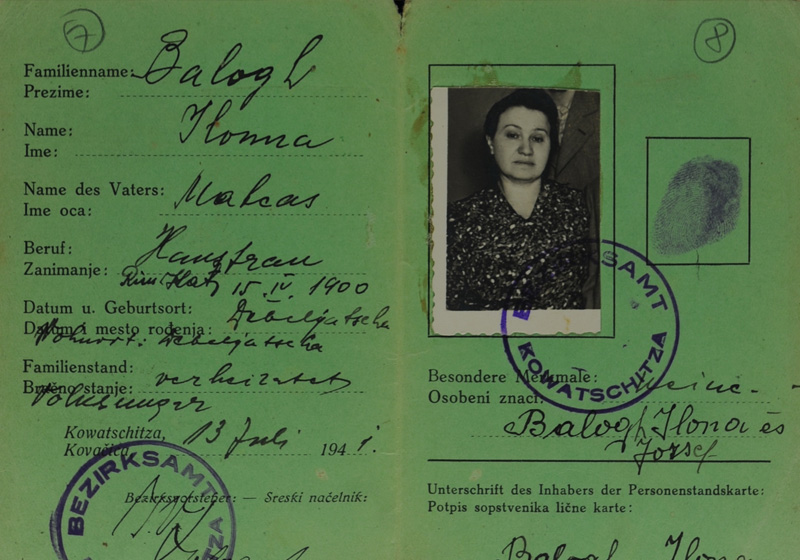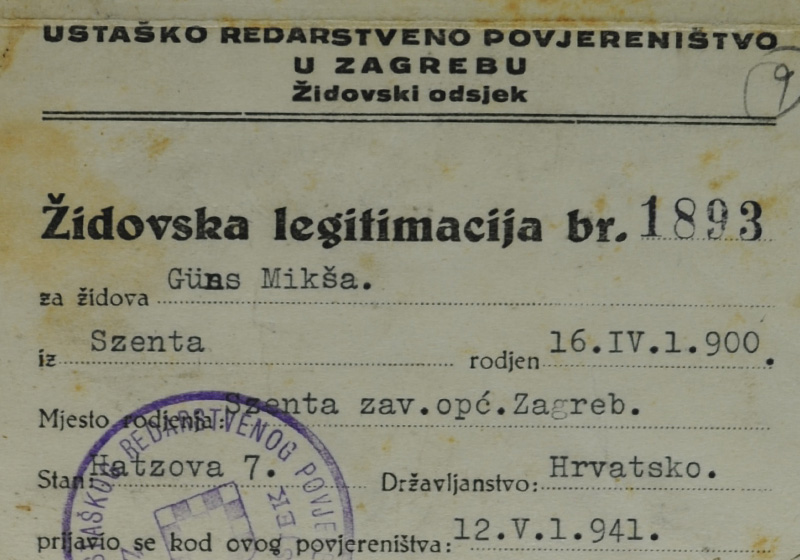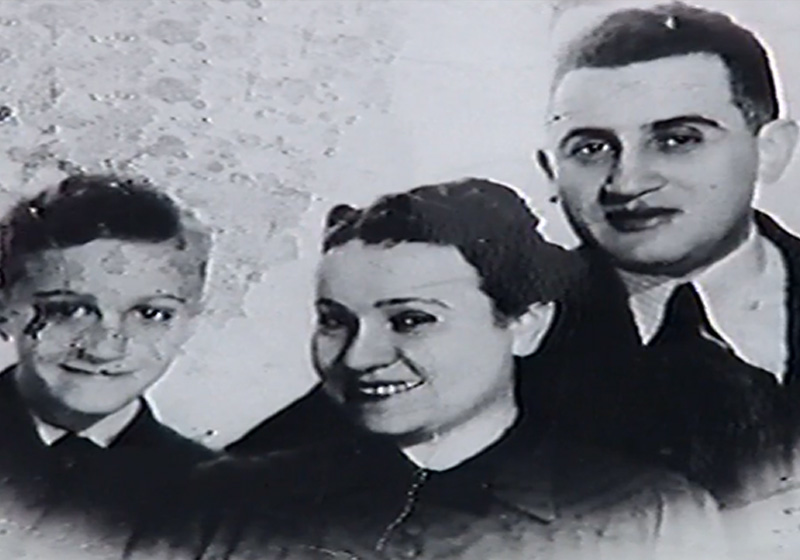"Remember Your New Name "
Surviving the Holocaust under a False Identity
The Güns family survived living under false identities in Croatia
Miksa-Misu Güns and his wife Irena lived with their relatives in the village of Debeljača in the Banat Republic, Yugoslavia. Misu was a tailor. After the birth of their son David in 1925, the family left the village and moved to Zagreb. Misu opened a business in the feather trade, and the family was financially comfortable. They maintained a traditional Jewish lifestyle. Their son Joseph was born in 1932.
When the Germans invaded Yugoslavia, nine-year-old Joseph was approaching the end of third grade at the Jewish elementary school in Zagreb, and 15-year-old David was in high school. Under the Ustaše, the Jews were forced to wear the Yellow Star, to hand in all their jewelry, to register themselves in the community, and to use special ID cards identifying them as Jews. Misu was compelled to close down his business.
Some time before the Germans entered Zagreb, Misu and Irena bought a private house with a garden in a distant neighborhood, and moved there several weeks after the onset of occupation. This house provided their first escape route. No one knew them in the new neighborhood, and they lived without fearing that someone would recognize them and turn them in. They asked the doorman in their previous home, a friend, to look after their mail, and didn't tell him where they were moving to. On one occasion, the Ustaše arrived at the Güns's previous home looking to arrest Misu, who was already in the new house. Misu and Irena decided to flee Zagreb with the help of friends, particularly Antonia Fischbein, originally from Debeljača and married to a Jew.
Joseph relates:
Antonia Fischbein saved us. She deserves to be recognized as Righteous Among the Nations… She was born in the village where my parents got married, Debeljača. Her husband Herman was a Jew from Bosnia, a wealthy building contractor, and they lived in Zagreb. She was very organized, and unusually resourceful… She traveled to Kovačica [a city adjacent to her birthplace, at the time under German rule]… and bribed the Chief of Police to accompany her to court. She also brought two drunks from the tavern, and paid them each 100 dinars to testify under oath, corroborating everything she said. In this way, she obtained forged papers for herself and her husband.
Antonia and Herman left Zagreb and reached Split in Dalamatia, which was located in Italian-controlled territory. Antonia then decided to return to Debeljača, in order to rescue other people. Joseph recalls:
She said to her husband: 'Herman, I saved you, and now you need to stay here, and I will rescue Misi [Misu Güns].' Despite Herman's protestations, Antonia returned to her birthplace, putting herself at considerable risk. In order to reach the village, she had to traverse three countries, leave Italian-controlled territory and cross Ustaše-controlled Croatia to reach Serbia… Initially, she reached Zagreb, collected photographs from us, and took a family photo, cutting out our faces with scissors. She saved 12 Jews: her husband's brothers, the four of us and another couple."
Antonia returned to Zagreb with forged papers for the Güns family, giving them all Hungarian names: Miklosch and Ilona Balogh, and their sons, Ivo and Josef, which she urged them to practice and memorize. Misu succeeded in collecting some of the debts due to him from the feather business, and on 15 July 1941, the family left Zagreb with Antonia. Before leaving, they destroyed all their original documents so that nothing incriminating would remain that could give away their Jewish identity. Their cover story was that they were going to Split on a two-week vacation. Their suitcases contained clothes for an extended period, including warm socks and winter coats. They feared the border checks, but this time too, Antonia came to their aid and managed to rescue Misu from the Ustaše border police's interrogation. Misu refused to leave Zagreb without his Tallit (prayer shawl), Tefillin (phylacteries) and Siddur (prayerbook), so Antonia carried those items on her person. They reached Split, and shortly afterwards, moved to the port city of Sibenik. Herman had connections with contractors there, and organized work for them in the aluminum factory. Misu made use of his tailoring skills to make cloth shoes that he sold, thus adding to the family's meagre earnings. The Güns family of four succeeded in surviving for three-and-a-half years posing as Hungarian Christians. Always hungry, they lived in perpetual fear and dread. Joseph recalls:
There were neighbors who suspected us, especially one who lived opposite, and always asked: 'Who are you? What does your father do? Why did you come?... Why don't we ever see you in church on Sunday?' We were terrified that they would discover who we were.
Tito's partisans liberated Sibenik on 3 November 1944. Misu volunteered his tailoring services to the partisans, and David, who was already 18, joined them and fought in their ranks to liberate Trieste and other places. After the war, David enlisted in the Yugoslav Army, and was released from army service in 1946. 12-year-old Joseph started studying at the school that the partisans established in Sibenik, and was reunited with his parents in Zagreb at the end of the school year. Misu's parents and all his brothers and sisters were murdered in the Holocaust.
In 1948, the Güns family immigrated to Israel. David and Joseph joined a kibbutz, and Misu and Irena settled in Haifa. In 2011, the forged ID papers that helped the family survive the Holocaust were donated to the Yad Vashem Archives as part of the "Gathering the Fragments" project. Some of the papers are displayed here.

